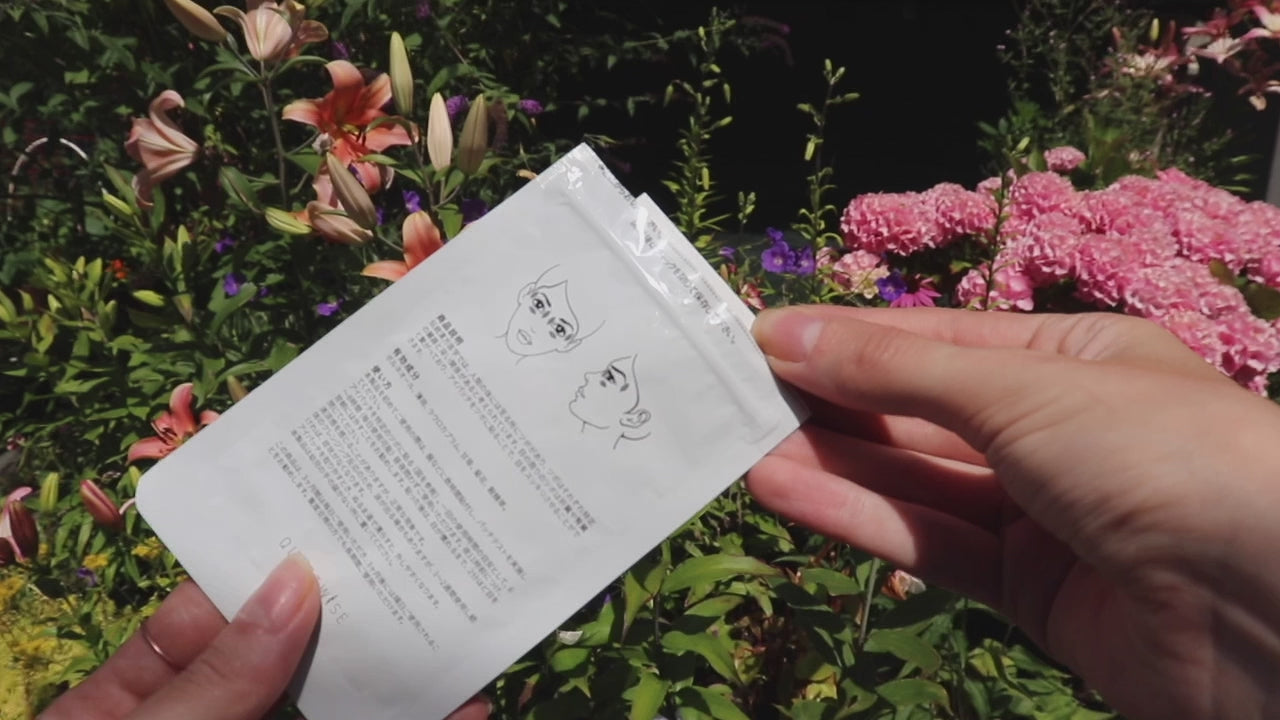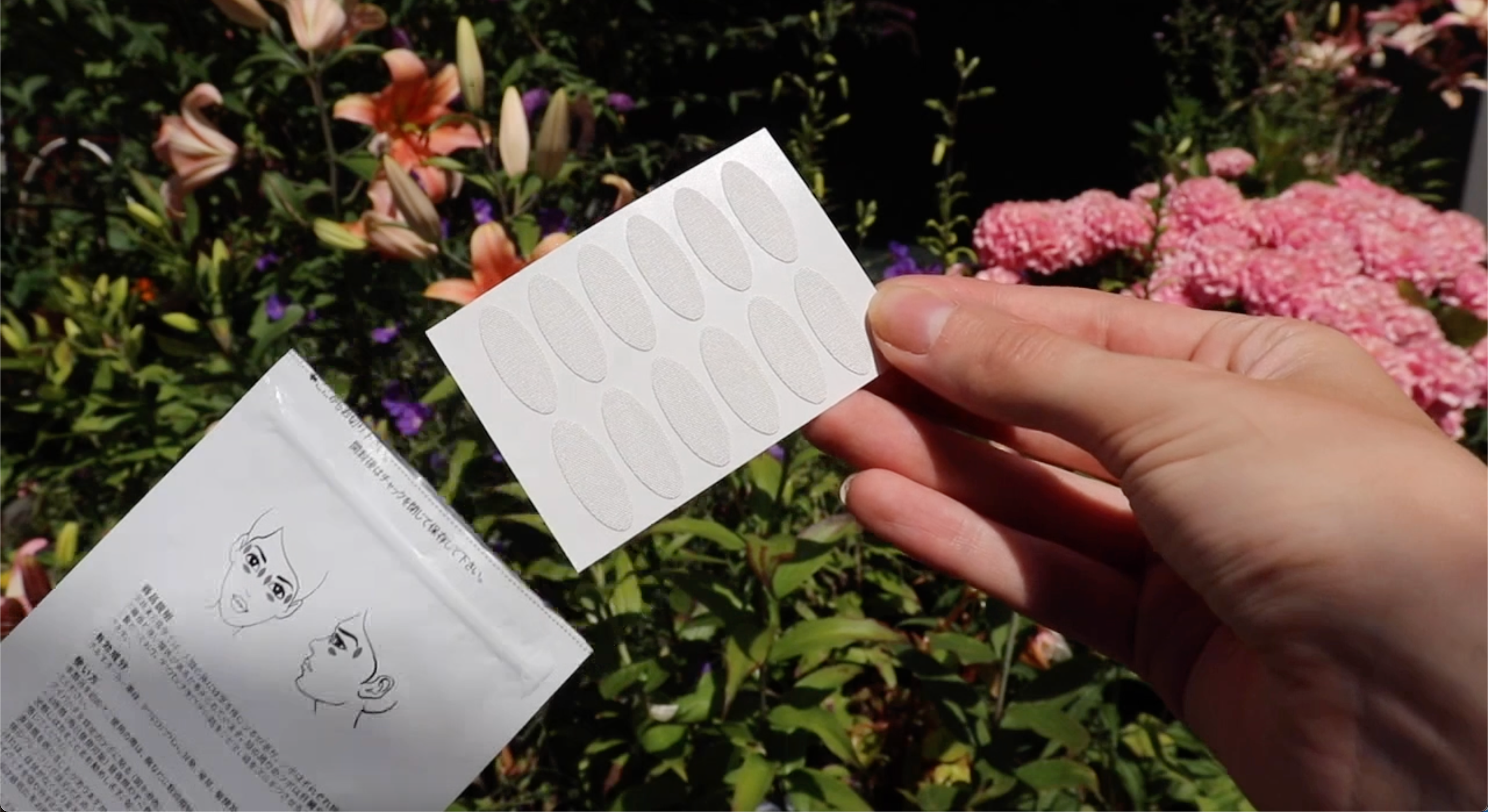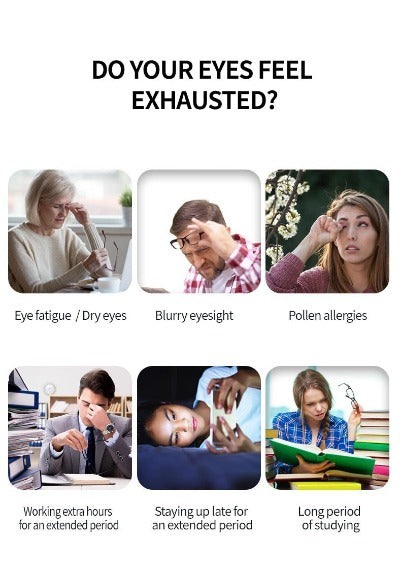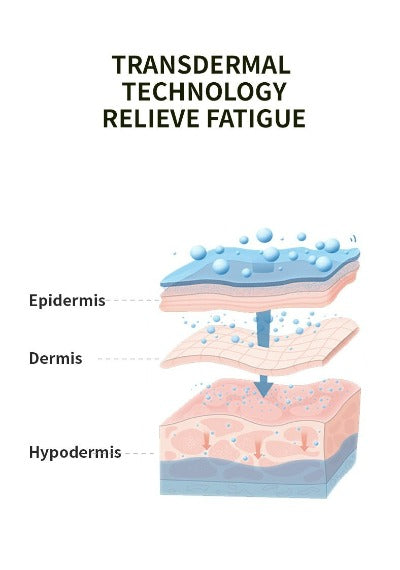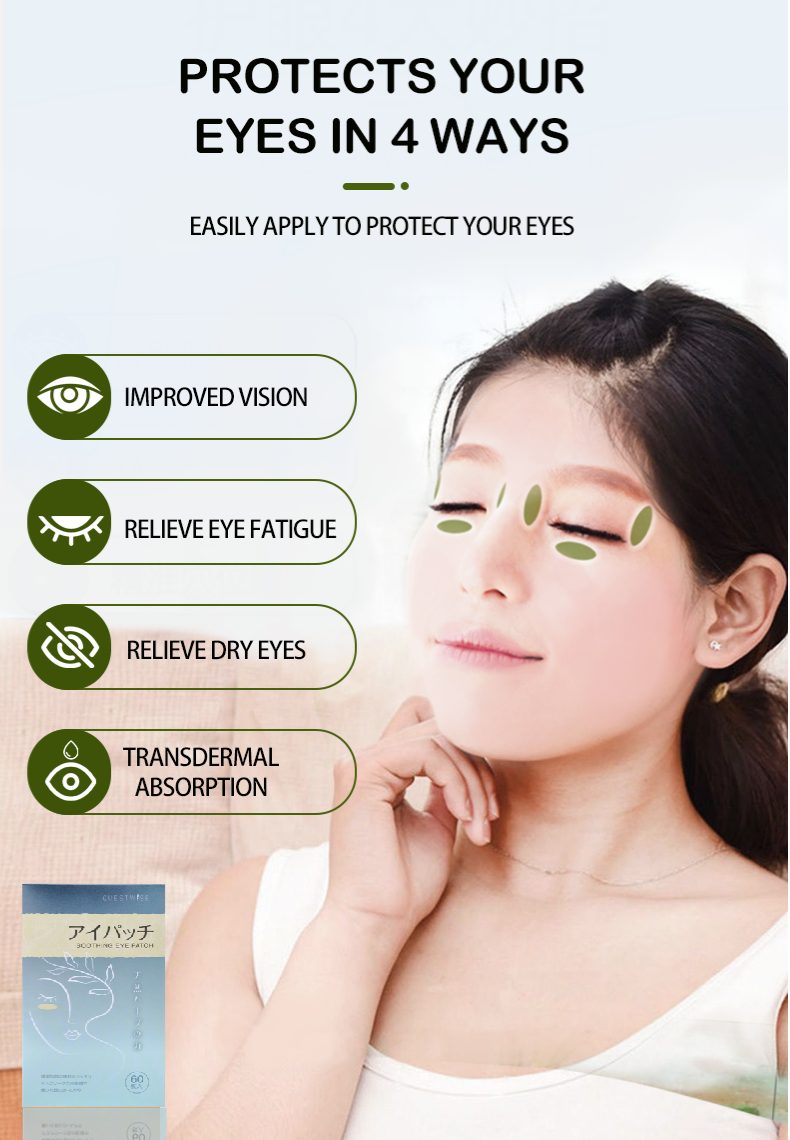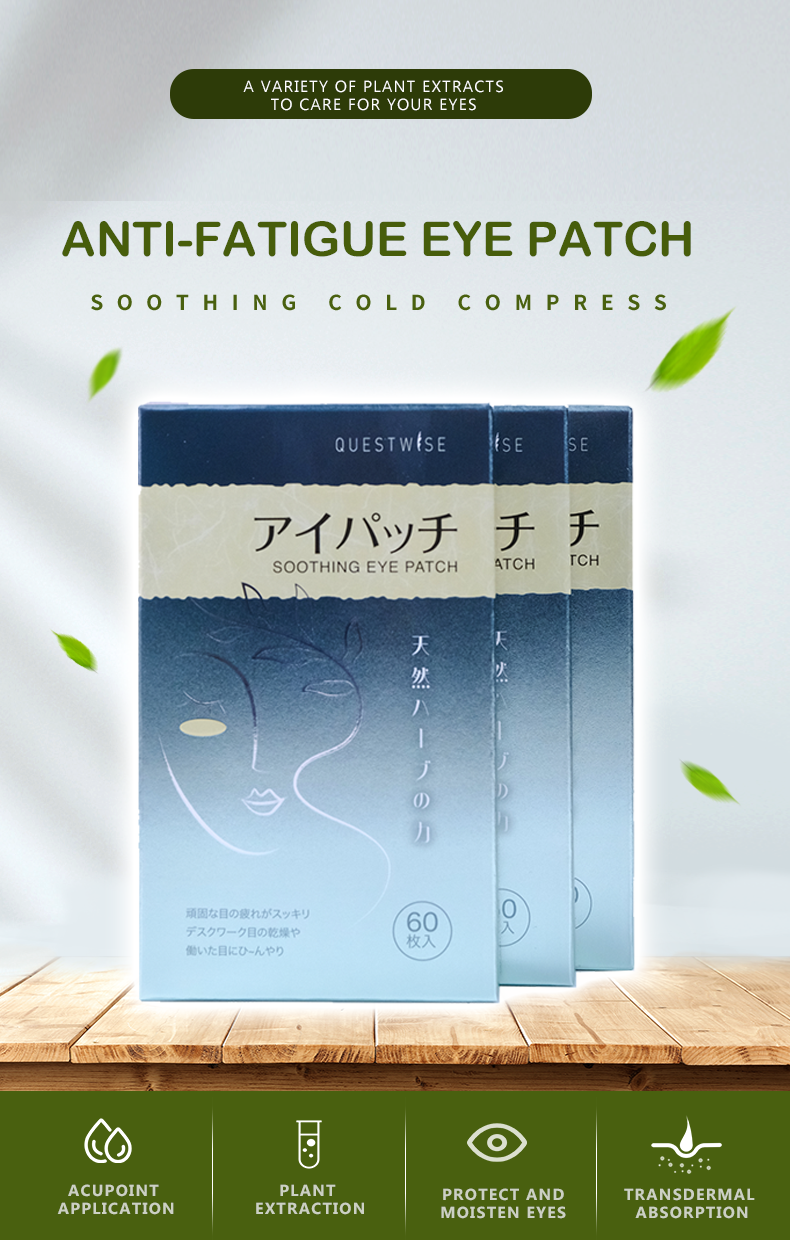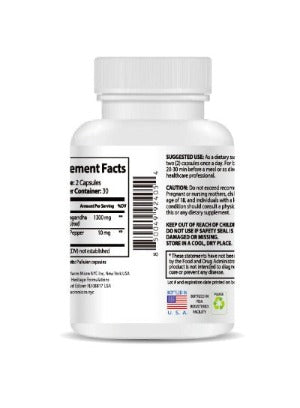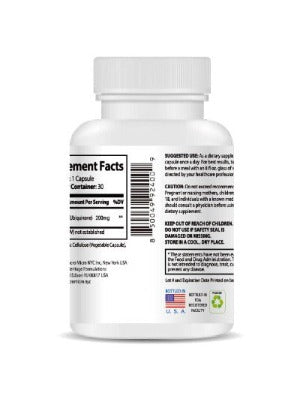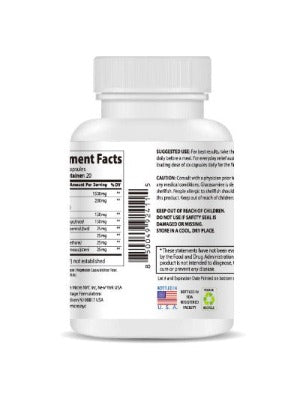Conquering the Morning Hay Fever Eye Itch: A 2025 Guide to Relief and Wellness
The persistent itch in your eyes, that unwelcome companion that seems to intensify the moment you wake up—hay fever's morning assault is a common plight shared by millions. But why this seemingly targeted morning misery? And more importantly, what can you do to reclaim your mornings from the clutches of relentless eye itching? In 2025, advancements in allergy management and understanding of the body's intricate responses offer a comprehensive approach to battling this frustrating symptom. This detailed guide will explore the science behind the morning hay fever eye itch, provide practical strategies for reducing exposure and inflammation, and showcase effective relief options, including the power of Wise Quest Soothing Eye Patches.
Unraveling the Mystery of the Morning Itch: A Deep Dive into the Science
The heightened eye itch upon waking isn't merely a random occurrence; it's a predictable culmination of several factors, acting in concert to create a perfect storm of discomfort. During sleep, allergens—pollen, dust mites, pet dander, and other irritants—settle on your pillowcase, bedding, eyelashes, and even your skin. While some exposure may occur throughout the night, the accumulated concentration of allergens, combined with the body's natural circadian rhythms, leads to an intensified inflammatory response in the morning hours.
Our bodies don't react instantly to allergen exposure. The process involves a cascade of events: allergens bind to immune cells, triggering the release of inflammatory mediators like histamine. This, in turn, causes blood vessels to dilate, leading to swelling, redness, and the characteristic itching of allergic conjunctivitis. The inflammatory cascade continues to build during sleep, reaching a peak in the morning as the body's natural response to the cumulative exposure to allergens is fully unleashed.
Furthermore, the body's natural cortisol levels—our primary stress and inflammatory hormones—fluctuate throughout the day, often dipping in the early morning hours. This drop in cortisol can reduce our body's natural ability to dampen the inflammatory response, thus contributing to the severity of the morning hay fever symptoms. This interplay of allergen accumulation, inflammatory response, and fluctuating cortisol levels paints a more complete picture of why the morning hay fever eye itch is so often pronounced.
Environmental Influences: The External Factors Contributing to the Problem
The indoor environment is not the only culprit. External environmental factors play a significant role in determining the severity of morning hay fever symptoms. Pollen counts tend to be higher in the morning, especially after a still night, due to reduced pollen dispersal by wind and other weather patterns. The early morning hours often see increased humidity levels in many regions, which can enhance pollen allergenicity, making the allergens more potent triggers for inflammation.
Morning dew can also contribute by increasing pollen adherence to surfaces such as plants and grass, and the pollen-laden dew then gets transferred to the air, creating higher allergen concentrations. Geographical location and seasonal changes also play a role: areas with high pollen concentrations and seasons with abundant pollen release will naturally experience a more intense morning hay fever itch. This combination of internal bodily processes and external environmental triggers makes the morning a particularly challenging time for those suffering from seasonal allergies.
Strategies for Combatting Morning Hay Fever Eye Itch: A Multi-Pronged Approach
Successfully managing morning hay fever eye itch requires a holistic strategy targeting multiple aspects of the problem. This involves minimizing allergen exposure, reducing inflammation, and optimizing your sleep environment for restful, itch-free mornings.
1. Creating a Fortress Against Allergens: Bedroom Hygiene and Allergen Control
The bedroom should be your sanctuary, a haven free from the irritants that trigger your allergies. Regularly washing all bedding, including sheets, pillowcases, blankets, and duvet covers, in hot water (at least 130°F) is essential to kill dust mites and remove pollen. Invest in dust mite-proof covers for your mattress and pillows. Vacuuming frequently, preferably with a HEPA filter vacuum cleaner, helps remove allergen particles from carpets, rugs, and furniture.
Consider air purifiers with HEPA filters to remove airborne allergens from your bedroom. Keep windows closed during peak pollen hours. Avoid drying clothes outdoors if pollen counts are high, and regularly dust and wipe down surfaces to minimize allergen accumulation. These proactive steps create a less allergen-laden environment, reducing exposure while you sleep and improving the chances of waking up with less itchy eyes.
2. Optimizing Your Pre-Sleep Routine: A Gentle Approach to Evening Hygiene
A simple yet effective strategy involves showering before bed to remove pollen and other allergens that have accumulated on your skin and hair throughout the day. Changing into clean pajamas helps prevent allergen transfer from your day clothes to your bedding. Consider wearing a shower cap while sleeping, further reducing the chance that airborne allergens land in your hair and then transfer to your bedding during the night. These steps minimize allergen exposure as you sleep, leading to less morning inflammation.
3. Targeted Eye Care: The Power of Soothing and Anti-Inflammatory Products
Directly addressing eye irritation is key. Over-the-counter antihistamine eye drops can provide temporary relief, but integrating a more holistic approach is also beneficial. Here, the value of Wise Quest Soothing Eye Patches becomes apparent.

These patches harness the power of traditional Chinese herbal medicine to address eye fatigue, dryness, astringency, redness, and swelling. While not a direct hay fever treatment, their anti-inflammatory properties significantly reduce the itchiness and inflammation associated with allergic conjunctivitis. Applying these patches in the evening allows their soothing effects to work overnight, minimizing the intensity of the morning itch. The consistent use of these patches, combined with other strategies, helps reduce symptoms and promote healing.
4. Prioritizing Sleep Hygiene: The Foundation of a Healthy Immune Response
Beyond allergen control, ensuring adequate, high-quality sleep is critical. A cool, dark, and well-ventilated bedroom promotes restful sleep. Sleep deprivation weakens the immune system, increasing susceptibility to allergic reactions and intensifying inflammation. A consistent sleep schedule, combined with a relaxing bedtime routine, optimizes the body's ability to recover and respond effectively to allergens.
Long-Term Management: The Role of Professional Guidance
While these strategies offer immediate and short-term relief, consulting an allergist is crucial for long-term management. They can conduct allergy testing to pinpoint your specific allergens and develop a personalized treatment plan. This plan might involve medications (oral antihistamines, nasal corticosteroids), immunotherapy (allergy shots or sublingual immunotherapy), or other interventions tailored to your unique needs. Regular follow-up appointments allow for adjustments to your treatment plan based on your evolving needs and seasonal changes.
Reclaiming Your Mornings: A Path to Hay Fever Relief
Morning hay fever eye itch is a significant but manageable challenge. By understanding the underlying mechanisms—the interplay of allergen exposure, inflammatory responses, circadian rhythms, and environmental factors—and implementing the strategies outlined above, you can significantly reduce its impact on your daily life. The combination of allergen control, targeted eye care with products like Wise Quest Soothing Eye Patches, and proactive allergy management creates a powerful toolkit to reclaim your mornings and enjoy the benefits of allergy-free living.



